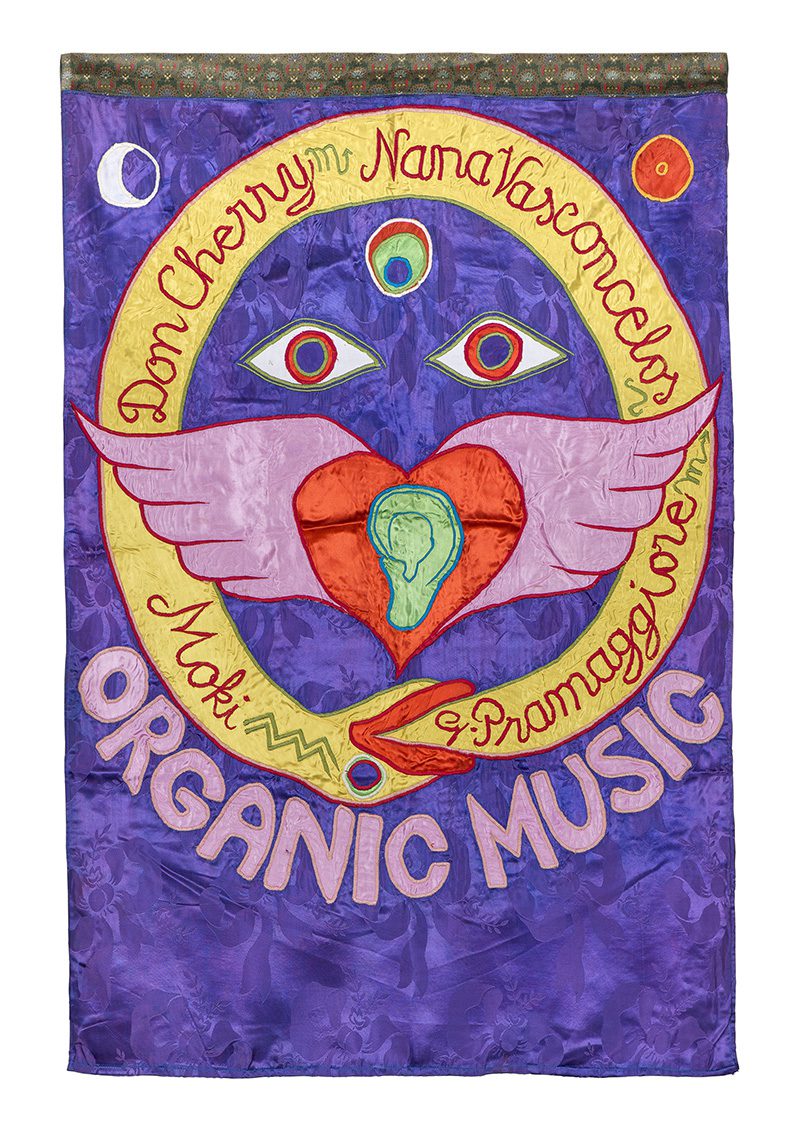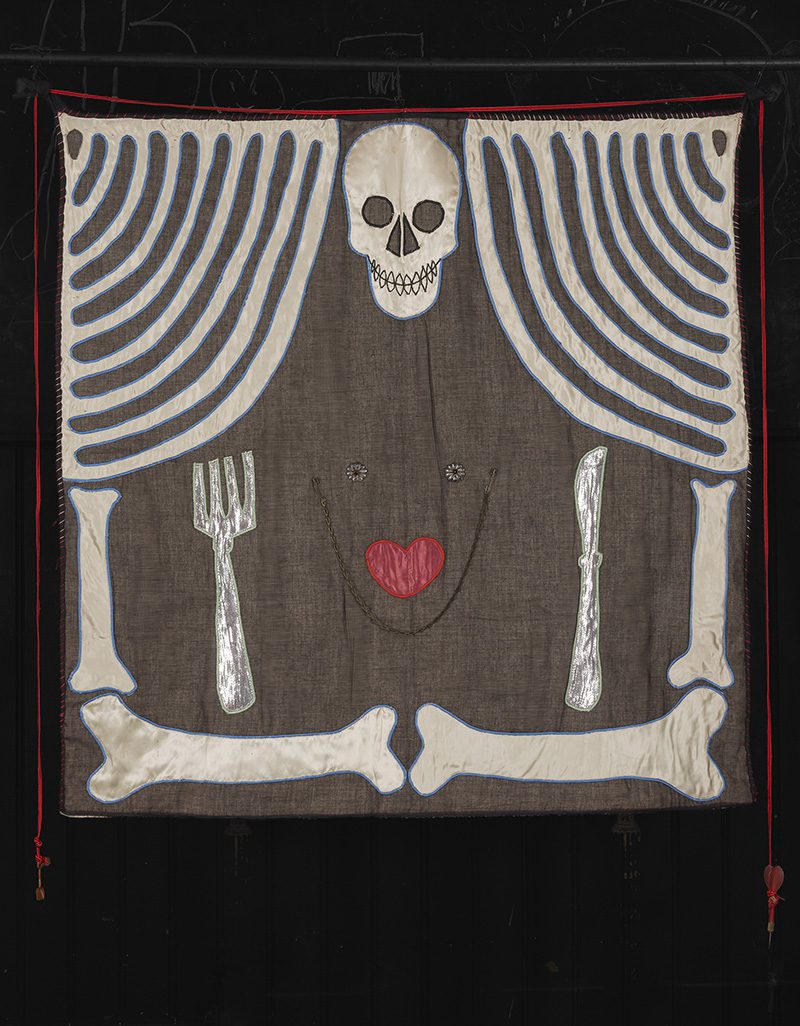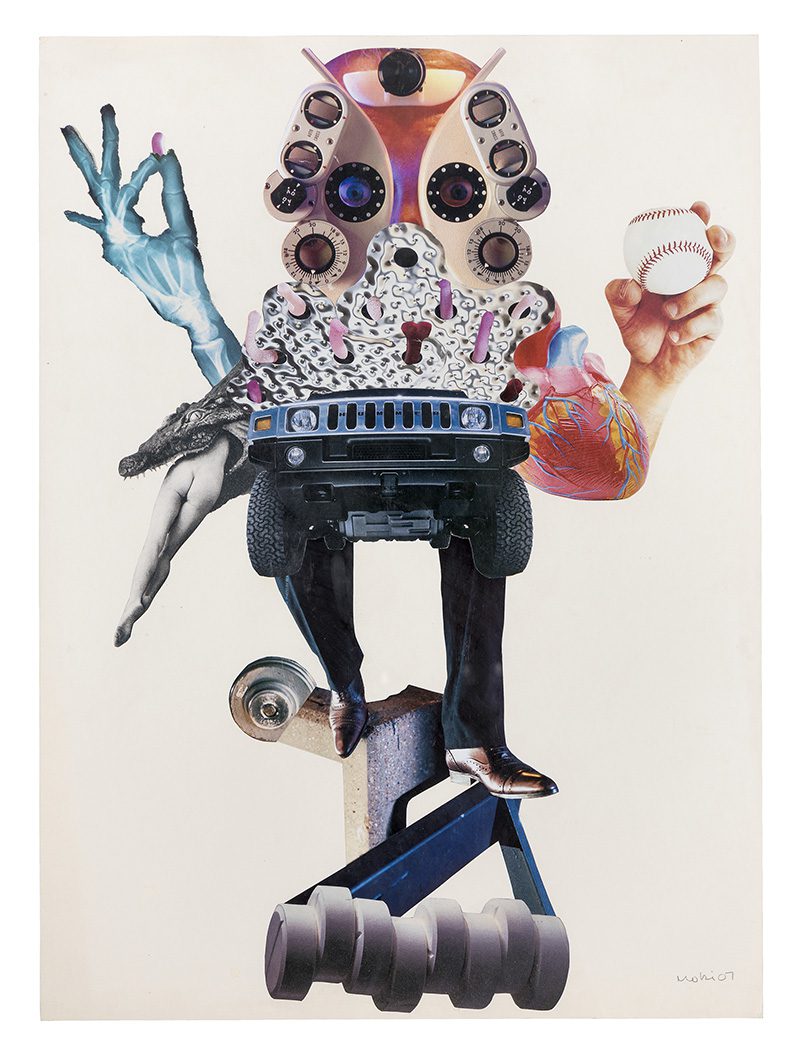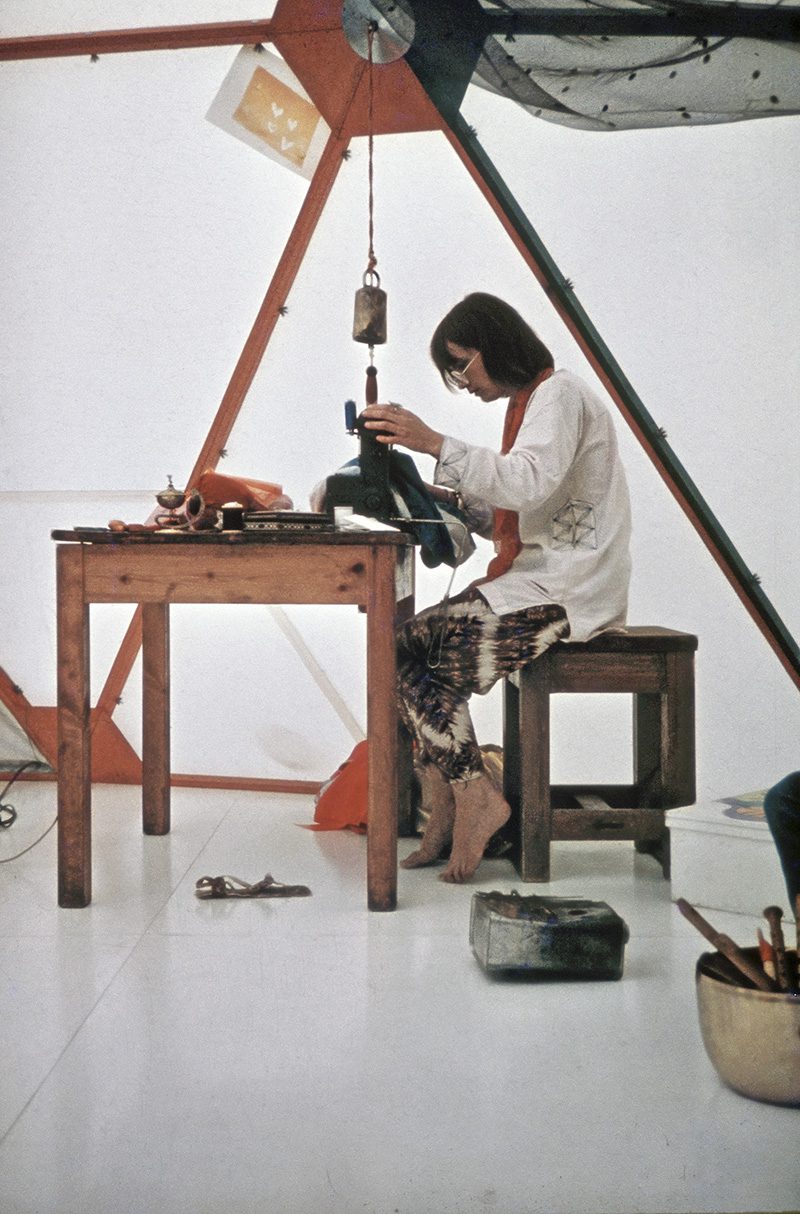ART-PRESENTATION: Moki Cherry-Moment
 Moki Cherry was typical of her age, but also a trailblazer. In the ‘70s, when many artists challenged the authorities, Moki Cherry based her artistic practice not on pointing out faults, but on promoting the values that were actually worth protecting and fighting for. A kind of utopian alternative – what life should we lead, and how?
Moki Cherry was typical of her age, but also a trailblazer. In the ‘70s, when many artists challenged the authorities, Moki Cherry based her artistic practice not on pointing out faults, but on promoting the values that were actually worth protecting and fighting for. A kind of utopian alternative – what life should we lead, and how?
By Dimitris Lempesis
Photo: Moderna Museet Archive
The exhibition “Moment – Moki Cherry” highlights the artist’s work in the ‘70s, but includes works made from 1967 to 2007. Presenting a mixture of Moki cherry’s appliqué works, drawings and collages, together with documentation, music and stage photos, the ambition is to tell the story of these objects, on the road between life, art, pop, jazz, politics and Gesamtkunstwerk*. The work of Moki Cherry leaned towards the contemporary experimentation with alternative ways of organising everyday life, counterurbanisation, living off the land, arts projects for kids, and interdisciplinary creative practices. In 1962, Moki moved in Stockholm to study at the Beckmans College of Design. A few years later, she met the American jazz musician Don Cherry and they embarked on a close collaboration. Separately and together, they made happenings, music, art, posters and album covers, and the large textile application works that Moki is famous for. They toured and performed together, combining the various forms of expression on stage in time and space. To describe the lively and open context of which they were the centre, they came up with the concept for Movement Incorporated in 1967. The name was later changed to Organic Music. In 1970, the family moved to an old school house in Tågarp, Skåne, where they lived according to the motto of “The stage as a home, and the home as a stage”. They formed an arts society for art, music and performing arts, along with the Octopussteatern project for kids and teenagers. They exhibited in 1971 in Moderna Museet’s “Utopias & Visions 1871-1981”, an exhibition with its point of departure in the revolutionary government of Paris in Spring 1871, the Paris Commune. During a few summer months, the Cherrys ran an open stage as part of this exhibition. This collaboration was successful to the extent that when Pontus Hultén was asked to start up Centre Pompidou in Paris, he invited them to set up a temporary children’s studio until the institution was completed.
* Is a work of art that makes use of all or many art forms or strives to do so. The term is a German word which has come to be accepted in English as a term in aesthetics.
Info: Curator: Fredrik Liew, Moderna Museet, Skeppsholmen, Stockholm, Duration: 9/4-9/10/06, Days & Hours: Tue 10:00-20:00, Wed-Sun 10:00-18:00, www.modernamuseet.se




.
